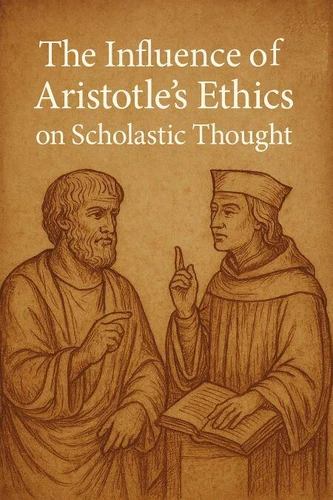The Influence of Aristotle’s Ethics on Scholastic Though
Par :Formats :
Disponible dans votre compte client Decitre ou Furet du Nord dès validation de votre commande. Le format ePub est :
- Compatible avec une lecture sur My Vivlio (smartphone, tablette, ordinateur)
- Compatible avec une lecture sur liseuses Vivlio
- Pour les liseuses autres que Vivlio, vous devez utiliser le logiciel Adobe Digital Edition. Non compatible avec la lecture sur les liseuses Kindle, Remarkable et Sony
 , qui est-ce ?
, qui est-ce ?Notre partenaire de plateforme de lecture numérique où vous retrouverez l'ensemble de vos ebooks gratuitement
Pour en savoir plus sur nos ebooks, consultez notre aide en ligne ici
- FormatePub
- ISBN8230272939
- EAN9798230272939
- Date de parution01/04/2025
- Protection num.pas de protection
- Infos supplémentairesepub
- ÉditeurIndependently Published
Résumé
Aristotle, a towering figure in ancient philosophy, stands as one of the most influential thinkers in the Western intellectual tradition. Born in 384 BCE in Stagira, a small town in northern Greece, Aristotle studied under Plato at the Academy in Athens before going on to tutor Alexander the Great. His contributions to a wide range of subjects-from metaphysics to logic, biology to politics-are vast and far-reaching.
However, it is in his Nicomachean Ethics that Aristotle's ideas on ethics and moral philosophy are most clearly articulated, and it is this work that would come to profoundly shape Scholastic thought in the Middle Ages.
However, it is in his Nicomachean Ethics that Aristotle's ideas on ethics and moral philosophy are most clearly articulated, and it is this work that would come to profoundly shape Scholastic thought in the Middle Ages.
Aristotle, a towering figure in ancient philosophy, stands as one of the most influential thinkers in the Western intellectual tradition. Born in 384 BCE in Stagira, a small town in northern Greece, Aristotle studied under Plato at the Academy in Athens before going on to tutor Alexander the Great. His contributions to a wide range of subjects-from metaphysics to logic, biology to politics-are vast and far-reaching.
However, it is in his Nicomachean Ethics that Aristotle's ideas on ethics and moral philosophy are most clearly articulated, and it is this work that would come to profoundly shape Scholastic thought in the Middle Ages.
However, it is in his Nicomachean Ethics that Aristotle's ideas on ethics and moral philosophy are most clearly articulated, and it is this work that would come to profoundly shape Scholastic thought in the Middle Ages.

















